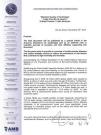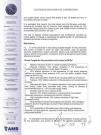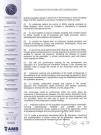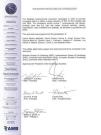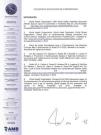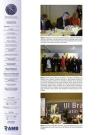Cardiovascular disease (CVD) is the leading cause of morbidity and mortality in the western world. Despite extraordinary advances in the treatment of CVD, which have reduced mortality rates in the most common diseases, there is still a long path ahead, especially in terms of cardiovascular prevention. The prevalence of CVD remains high, but much of it is potentially preventable, which makes the development and implementation of measures to reduce its impact an important goal.1,2
In 2008 the World Health Organization (WHO) approved an Action Plan for a Global Strategy for the Prevention and Control of Noncommunicable Diseases,3 which is based on three key components: surveillance, prevention and management of non-communicable diseases.
The importance of these components was highlighted at the High-level Meeting of the General Assembly on the Prevention and Control of Non-communicable Diseases in New York, September 19-20, 2011. The ensuing Resolution (66/2),4 adopted by the General Assembly on September 19, 2011, calls on the WHO to implement the following measures by the end of 2012:
- 1.
to develop a comprehensive global monitoring framework, including a set of indicators capable of application across regional and country settings, to assess progress made in the implementation of national strategies and plans on non-communicable diseases;
- 2.
to prepare recommendations for a set of voluntary global targets for the prevention and control of non-communicable diseases.
The Declaration also calls on Member States to consider the development of national targets and indicators based on national situations, building on guidance provided by the WHO.
To this end, various international organizations, working alone or in cooperation with other bodies, have developed recommendations for prevention. Among them, the prestigious Brazilian Society of Cardiology, represented by its President, Prof. Jadelson Pinheiro de Andrade, decided to produce the «Letter from Rio de Janeiro 2012», in collaboration with major international cardiovascular societies – the American Heart Association, the European Society of Cardiology and the InterAmerican Society of Cardiology. The Letter sets out a series of principles and recommendations for cardiovascular prevention which each of the Societies has approved and will promote; it is published in this issue of the Journal as an annex to this Editorial Note in the hope that it will contribute to wider awareness of the issue.
I would like to reiterate what I have said before in various forums concerning the importance to the relationship between Europe and Latin America of the close partnership between Portugal and Brazil, in this case in the context of cardiovascular medicine. This is a good example of how particular circumstances have enabled Portuguese cardiology to take on an important role.
It is my hope that the publication of this document will encourage the Portuguese cardiological community to play an effective part in its implementation, and that the Portuguese Society of Cardiology in particular will make every effort to see that its recommendations become a reality.
I end with a quotation from the first Chinese medical text, dating back over 4000 years, that is just as true today: «Superior doctors prevent the disease. Mediocre doctors treat the disease before it is evident. Inferior doctors treat the full-blown disease.»5
#Please cite this article as: Pinto, F; A Carta do Rio de Janeiro 2012: Um marco importante no combate à Doença Cardiovascular. Rev Port Cardiol 2013. http://dx.doi.org/10.1016/j.repc.2013.01.001




